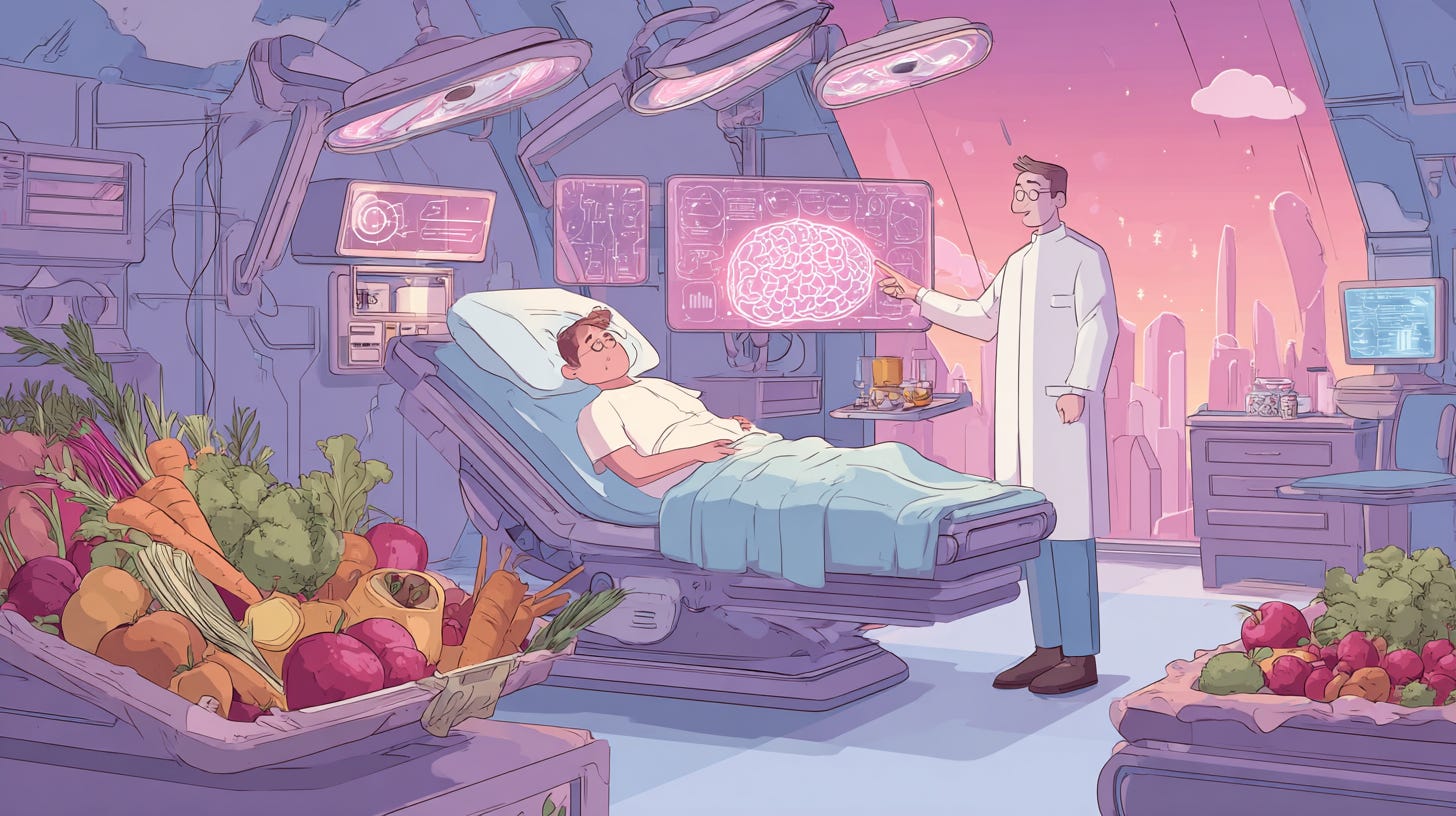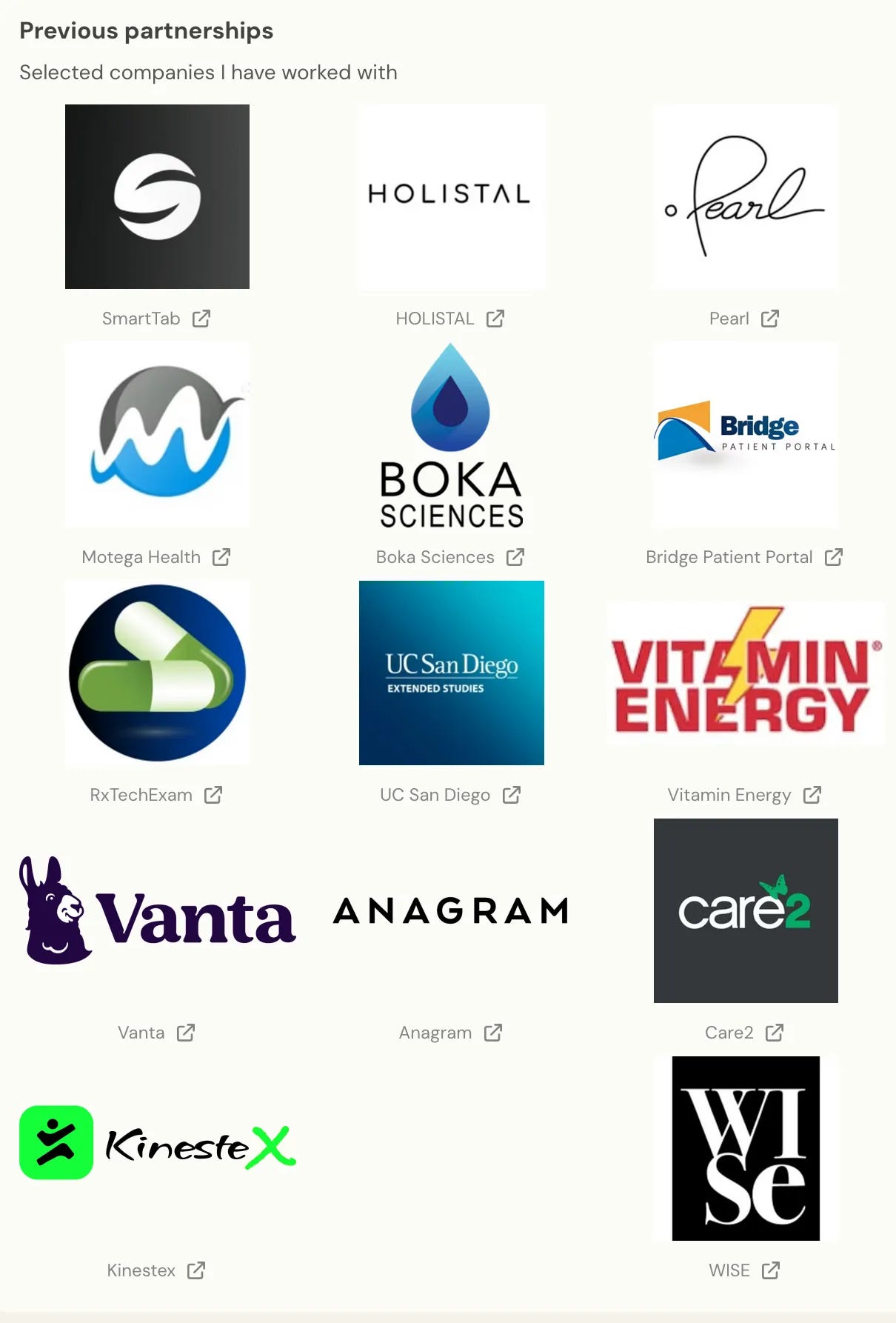🏥 The Precision Health Revolution: When Nutrition Gets Smart, Gravity Gets Optional, and Therapy Goes Digital 💪🧠✨
Would you like to be featured in our newsletter🔥 and get noticed, QUICKLY 🚀 (150K+ subscribers)? Reply to this email or send an email to editor@digitalhealthbuzz.com, and we can take it from there.
⭐⭐⭐⭐⭐⭐⭐⭐⭐⭐⭐⭐⭐⭐⭐⭐⭐⭐⭐⭐⭐⭐⭐⭐⭐⭐⭐⭐⭐⭐⭐⭐⭐⭐⭐⭐⭐⭐⭐⭐⭐⭐⭐
Would you like to be featured in our newsletter🔥 and get noticed, QUICKLY 🚀 150,000+ subscribers)? Simply reply to this email or send an email to editor@digitalhealthbuzz.com, and we can take it from there.
⭐⭐⭐⭐⭐⭐⭐⭐⭐⭐⭐⭐⭐⭐⭐⭐⭐⭐⭐⭐⭐⭐⭐⭐⭐⭐⭐⭐⭐⭐⭐⭐⭐⭐⭐⭐⭐⭐⭐⭐⭐⭐⭐This week reveals a powerful truth about modern healthcare: the best solutions don’t just treat problems—they fundamentally reimagine how we approach wellness, recovery, and mental health. We’re witnessing three distinct revolutions happening simultaneously: nutrition tracking evolving from tedious calorie math into AI-powered optimization, rehabilitation technology that literally defies physics to accelerate healing, and evidence-based psychotherapy breaking free from the confines of traditional office settings. What connects these innovations isn’t just technology—it’s the recognition that personalized, accessible, and intelligent healthcare tools can deliver expert-level results without the traditional barriers of cost, location, or complexity. From the smartphone in your pocket to the NASA-inspired equipment in cutting-edge clinics, digital health is proving that the future of medicine is both more precise and more accessible than ever before. Let’s explore how these transformations are changing lives one innovation at a time.
Are You Getting The Most Bang For Your Buck With Your Daily Nutrition? Why Calorie Counting Could Be The Missing Puzzle
Modern calorie counting has evolved far beyond tedious notebook math into something transformative. Today’s AI-powered nutrition apps like Fitia can identify meals from photos, estimate portions with precision, and even let you log food by simply speaking. This isn’t about restriction—it’s about optimization and understanding that 100 calories of chicken breast has a profoundly different effect than 100 calories of olive oil.
The convergence of smartphone technology, nutritional databases, and machine learning has turned tracking from passive data entry into active, personalized coaching that detects patterns, suggests meals based on your remaining macros, and adapts recommendations in real-time. Whether you’re a weekend warrior whose energy drops during training or someone recovering from years of restrictive dieting, modern tools provide data without judgment. The missing piece in your nutrition puzzle might not be another diet—it could simply be the awareness that comes from truly understanding what you’re putting into your body.
The Role of Anti-Gravity Treadmills in Rehabilitation
Rehabilitation specialists have long faced the “load paradox”—patients need exercise stress to rebuild strength, but excessive load can worsen injuries. Enter the anti-gravity treadmill, NASA-inspired technology that solves this with remarkable precision. Using Differential Air Pressure technology, the AlterG Anti-Gravity Treadmill can reduce gravitational load in 1% increments, creating a floating sensation while you walk, run, or jump.
The clinical evidence is compelling: a 2022 study found “several therapeutic advantages” in running injury rehab, while a 2024 review confirmed the technology is “feasible, safe and well-tolerated.” Applications extend far beyond sports medicine—from post-surgery rehabilitation to helping stroke patients relearn movement patterns to mobility training for older adults. When integrated into personalized rehabilitation plans, anti-gravity treadmills represent one of the most significant advances in helping patients return to full mobility faster and safer than traditional methods.
The Digital Evolution of Mental Health: Dialectical Behavior Therapy Treatment
When Dr. Marsha Linehan created Dialectical Behavior Therapy in the late 1980s for suicidal patients with borderline personality disorder, she couldn’t have predicted how perfectly it would adapt to the digital age. DBT’s four key skills—mindfulness, distress tolerance, emotion regulation, and interpersonal effectiveness—translate naturally to digital delivery, making it ideal for today’s world of constant connectivity and work-life imbalance.
Today’s digital DBT ecosystem includes teletherapy through secure video calls, virtual group training, on-demand coaching via phone and text when emotions overwhelm, and interactive apps for skill-building between sessions. The benefits are transformative: enhanced accessibility for remote populations, flexibility to schedule around work and family, and greater comfort for those who prefer home privacy. While digital tools broaden access, professional support remains essential—licensed therapists still craft custom treatment plans. Technology is changing how we recover, proving mental health care can evolve while honoring the deeply human aspect of healing.
🔥 Digital Health Buzz! community
We noticed that there are many exciting Health startups that consumers are really keen to work with. Unfortunately, many of these startups close their doors before even getting noticed (aka vanish)!
To tighten this gap, we started the Digital Health Buzz! community to bring Health startup founders and consumers together under one roof!
Go ahead and join the group to hunt some interesting Health startups, land some potential leads, conduct fruitful discussions, get our questions answered, and more…
Joining the group is FREE for a limited time only!
Thank you for reading this edition of the Digital Health Buzz! Newsletter. Stay healthy, stay curious, and here's to pushing the boundaries of healthcare together! 💪🌐💖








👍